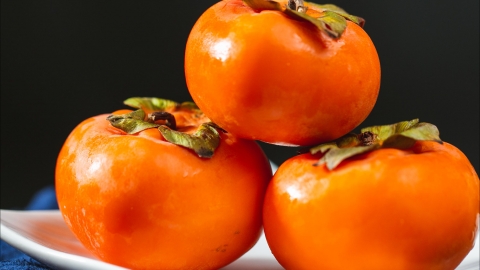What should not be eaten with persimmons?
Generally, when consuming persimmons, it is advisable to avoid combining them with milk, oranges, spinach, kelp, or alcohol. If any discomfort occurs, it is recommended to seek medical attention immediately. The detailed explanations are as follows:

1. Milk
Milk is a high-protein food. The tannic acid in persimmons can easily combine with proteins to form precipitates that are difficult to digest. This not only affects protein absorption but may also cause gastrointestinal discomfort.
2. Oranges
Oranges are acidic fruits containing large amounts of acidic substances. Consuming oranges together with persimmons may lead to the accumulation of acidic substances in the body, potentially causing indigestion.
3. Spinach
Spinach contains significant amounts of starch and fiber, which can react with components such as tannins in persimmons, leading to indigestion or the formation of gastric persimmon stones.
4. Kelp
Kelp is rich in calcium ions, which can easily combine with tannic acid in persimmons to form insoluble complexes, potentially causing gastrointestinal discomfort.
5. Alcohol
Alcohol has a spicy and slightly bitter taste and is considered hot in nature and toxic. Persimmons have an astringent effect and may retain the damp-heat nature of alcohol within the body, negatively affecting health.
It is recommended that when consuming persimmons, individuals should adjust according to their own circumstances and avoid excessive consumption to maintain a healthy digestive system.





